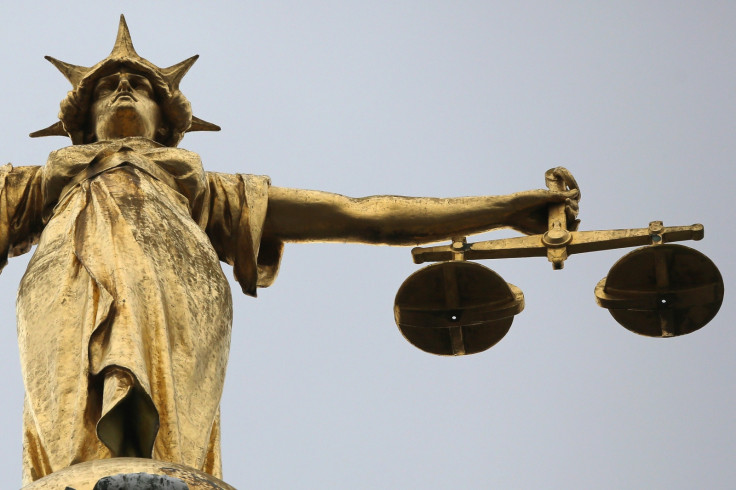Is the CPS really to blame for collapsing rape trials?
Amid the collapse of various rape trials, who is to blame for the crisis in Britain's judicial system?

The current disclosure crisis engulfing the criminal justice system is one that has been simmering below the surface for some time. Only now is it receiving the attention many defence practitioners would argue it should have been afforded years ago.
Indeed, a report back in July 2017 found that police scheduling of evidence was "routinely poor" and that prosecutors were "failing to manage ongoing disclosure".
The disclosure failures identified in recent cases, which have resulted in their collapses a short time before trial, do not in fact appear to have stemmed from wrongdoing by the CPS.
In fact, the current vitriol could arguably be more fairly aimed at the police, who act as the gatekeepers of evidential material.
Yet it is the CPS, and the Director of Public Prosecutions (DPP) most publicly, who are now under attack from those who legitimately worry about the miscarriages of justice that may already have occurred and from those who worry that criminals could now be escaping justice.
The recent cases have principally concerned allegations of rape or sexual offences, but the underlying problem is universal.
The media's focus on sexual offences is no doubt a response to the public interest in such cases, but it is nevertheless justified. Sexual offences typically involve the word of one party against another, with no factual witnesses, and with the key issue usually being consent and the defendant's reasonable belief in that consent.
Evidence as to defendant's reasonable belief in the complainant's consent is notoriously difficult to gather and it is even more difficult for the relevance of that material to be assessed. Mobile phones can offer vital context.
They are a window into their owners' lives and material held therein which is capable of undermining the prosecution or assisting the defence (the so called "disclosure test") is that which a defendant wants and is entitled to see.
The police have a duty to review this material and assess its relevance in line with the disclosure test. Material is "relevant" (for the purpose of providing to a prosecutor) if "it has some bearing on any offence under investigation or any person being investigated, or on the surrounding circumstances of the case." If this review is carried out correctly, it must be passed to the CPS and thereafter disclosed to the defence under the Criminal Procedure and Investigations Act 1996.

However, the recent cases demonstrated that the CPS had never been passed the ultimately damaging material by police, and they could not disclose to the defence what had not been seen or even described to them in brief.
Clearly, the correct determination as to relevance is not being done, either as a result of the police improperly applying the disclosure test or (of greater concern) choosing not to apply it correctly.
Either way, the emerging picture is one of a disproportionate influence capable of being wielded by the police to "cherry pick" the evidence presented to the CPS. Such practices, it was hoped, had been confined to the history books — but it appears they remain alive and well.
It is impracticable to suppose that the vast amounts of electronic material gathered by the police can be effectively reviewed and/or provided en masse to the CPS. Neither, it is submitted, should the defence be automatically entitled to the entire contents of a complainant's electronic devices. Opening the floodgates in this manner was not contemplated by the Criminal Procedure and Investigations Act 1996 and would cause unwarranted delay and disproportionate intrusion, further reducing the number of successful and proper convictions.
What is entirely clear is that there must be a sea change in the manner in which investigations are carried out.
The police have a duty to remain impartial, and to disclose material that may not be supportive of their own case theories. In cases involving death, rape or other serious sexual offences, there should be a greater level of early engagement by the prosecutor and disclosure reviews should either be carried out by suitably trained senior officers or by the CPS themselves.
In our two-tier system, where investigators and prosecutors are separate entities, it cannot be the case that material falls between the cracks.
It does appear that the recent storm has prompted both the CPS and the police to take the matter seriously.
The hastily published National Disclosure Improvement Plan has accepted "systemic and deep-rooted issues" and has set a series of (relatively vague) targets through which the CPS and police hope to remedy the situation.
What is clear is that the only way any plan for improvement can be effective is through constructive and reasoned dialogue between the police, prosecution, defence and judicial communities.
If this plan proves to be little more than crisis management by the DPP, it is inevitable that miscarriages of justice of all kinds will continue to be a serious and unavoidable possibility.
Danielle Reece-Greenhalgh has particular experience in acting for youth clients under investigation for sexual offences. She has also worked on behalf of individuals facing extradition and in proceedings for fraud, bribery and corruption offences.




















